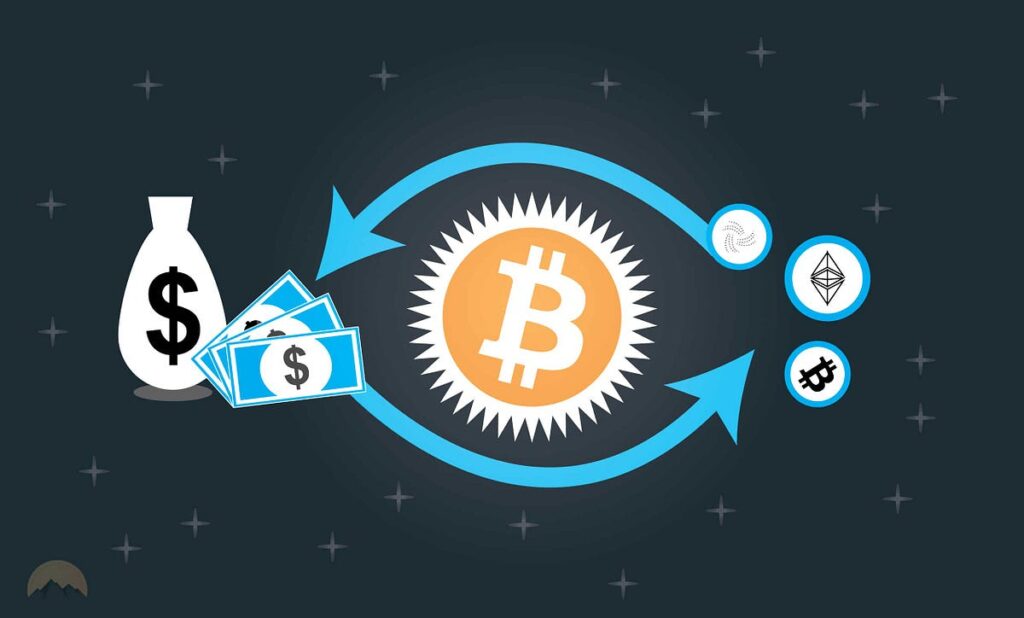So, you’ve decided to dip your toes into the mysterious waters of cryptocurrency? Nice! But let’s be real—choosing your first crypto exchange can feel like picking a first car when you don’t even know how to drive. Don’t sweat it. This guide is your map, compass, and co-pilot. Let’s break it all down.

Why Picking the Right Exchange is a Big Deal
Think of a crypto exchange like the entrance to the crypto universe. Pick the wrong one, and you could end up confused, frustrated, or even worse—scammed. Pick the right one, and it’s smooth sailing.
What Makes a Crypto Exchange Beginner-Friendly?
Not all exchanges are created equal. Some are sleek and simple, while others look like a Wall Street trader’s dashboard on steroids.
Simple Interface, No Headaches
Beginners need a clean, uncluttered dashboard. You want big buttons, not big stress.
Educational Resources
If an exchange has built-in tutorials, glossaries, or demo accounts—chef’s kiss. It’s like having training wheels until you’re ready to ride solo.
Low Fees, Big Smiles
You don’t want your $100 investment to turn into $93 after fees. Look for transparent fee structures that won’t eat into your capital.
Reliable Customer Support
When stuff goes wrong (and sometimes it will), having a helpful support team is a lifesaver. Live chat > email tickets any day.
Must-Have Features in a Beginner Crypto Exchange
Before we drop the names, let’s talk must-haves. These are the features that make or break the beginner experience.
Intuitive Mobile App
If it feels like playing Candy Crush to buy Bitcoin, that’s a win. A solid mobile app lets you trade, learn, and track prices on the go.
Fiat On-Ramp (AKA Credit Cards & Bank Transfers)

No one wants to jump through hoops just to buy a few bucks worth of crypto. Easy deposits and withdrawals = happiness.
Security Features That Keep Your Coins Safe
Two-factor authentication (2FA), cold storage, and encrypted logins are a must. If an exchange doesn’t shout “SECURE,” run the other way.
Top 5 Crypto Exchanges for Beginners in 2025
Alright, let’s cut to the chase. Here are our top beginner-friendly platforms that balance ease of use, security, and educational support.
1. Coinbase – The Apple of Crypto Exchanges
- Super user-friendly
- Great mobile app
- Tons of educational content (and you earn crypto by learning!)
- Slightly higher fees, but worth it for newbies
2. Binance – Big, Bold, and Beginner-Aware
- Massive selection of coins
- Easy-to-navigate “Binance Lite” mode
- Low trading fees
- Some features may be overwhelming, but great for growing into
3. Kraken – For the Curious and Cautious
- Excellent security reputation
- Clean interface
- Solid support and educational guides
- Better for desktop than mobile, but improving
4. eToro – Where Trading Feels Like Social Media
- Copy top traders with a single click
- Fun, interactive design
- Offers both crypto and stocks
- Not as many coins, but simplicity wins
5. Gemini – Clean, Regulated, and Reliable
- Strong U.S. regulatory compliance
- Elegant UI with beginner-focused features
- Learning hub is top-notch
- Fees could be lower, but very secure
Common Mistakes Beginners Make (and How to Dodge Them)
Let’s get ahead of the pitfalls most rookies tumble into.
Chasing Hype Coins
Dogecoin might be cute, but don’t buy just because it’s trending. Do your homework.
Ignoring Security Basics
If your password is “password123,” we need to talk. Use a password manager and enable 2FA.
FOMO Buying Without Research

If you buy a coin just because it’s pumping, chances are you’ll be the last one holding the bag. Patience, grasshopper.
How to Sign Up on a Crypto Exchange (Step-by-Step)
- Choose your exchange
- Create an account (email, password, basic info)
- Verify your identity (KYC = Know Your Customer)
- Connect your payment method
- Make your first crypto purchase
- Celebrate—you’re now a crypto holder!
Safety First: Tips to Stay Secure While Trading
- Use strong, unique passwords
- Turn on two-factor authentication (seriously, do it now)
- Don’t share account details—even with “support agents”
- Store large amounts in a hardware wallet, not on the exchange
When to Level Up: From Beginner to Intermediate
If you’ve:
- Made a few trades
- Learned about different coin types
- Followed crypto news regularly…
…it might be time to check out advanced exchanges, DeFi, or even yield farming. But start slow. No rush.
Conclusion
So, there you have it. Whether you’re brand new or just crypto-curious, picking the best crypto exchange for beginners doesn’t have to be scary. Start simple, stay secure, and never stop learning. Crypto is a journey, not a race. Ready to start yours?
FAQs
1. What’s the safest crypto exchange for beginners?
Coinbase and Gemini are among the most secure, regulated platforms with beginner-friendly interfaces.
2. Can I buy crypto with a credit card?
Yep! Most beginner exchanges like Coinbase and Binance allow credit/debit card and bank transfers.
3. How much money do I need to start?
You can start with as little as $10 on most exchanges. Just don’t invest more than you’re willing to lose.
4. What is 2FA and why does it matter?
Two-Factor Authentication adds a layer of security. It’s like a second lock on your front door. Use it.
5. Should I keep my crypto on the exchange?
For small amounts, sure. For larger holdings, consider a hardware wallet like Ledger or Trezor.
6. What’s the difference between a centralized and decentralized exchange?
A centralized exchange (like Coinbase or Binance) acts like a middleman—you trust them to manage your crypto. A decentralized exchange (DEX), like Uniswap, lets you trade peer-to-peer. Centralized is easier for beginners; decentralized is more advanced and often riskier if you’re new.
7. Can I lose all my money trading crypto?
Sadly, yes. Crypto is volatile—prices can swing like a rollercoaster. That’s why it’s smart to start small, do your research, and never invest more than you’re willing to lose.
8. Do I need to pay taxes on crypto?
Yep! In many countries, crypto is considered taxable. If you make profits, the government wants a slice. Keep records of your trades and check with a tax pro or local laws to stay compliant.
9. Are crypto exchanges regulated?
Some are, some aren’t. Exchanges like Gemini and Coinbase follow strict regulations in countries like the U.S. Others may be based offshore and less transparent. Stick with regulated ones when starting out—it’s like wearing a helmet while learning to bike.